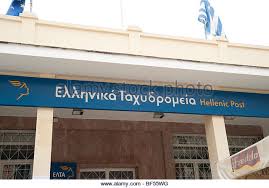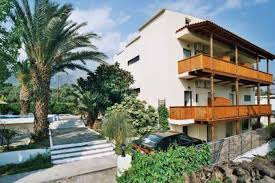 Both G.K Chesterton and T.S. Eliot said the purpose of travel is
Both G.K Chesterton and T.S. Eliot said the purpose of travel is to return home and discover our native land again. Yes, and… The other purpose to travel is to learn a few things. Some of what I’ve heard and seen made me happy. Some made me very uncomfortable. But I shared this with my people at Saint
to return home and discover our native land again. Yes, and… The other purpose to travel is to learn a few things. Some of what I’ve heard and seen made me happy. Some made me very uncomfortable. But I shared this with my people at Saint  Nicholas, Cedarburg, and if they could handle it, I figure you can too.
Nicholas, Cedarburg, and if they could handle it, I figure you can too. However, if you don’t want to read on, I won’t force you. See you next week! Above to the left is my favorite airline, Aegean. Below is a great Amtrak ride. To the right above is my very own hybrid! Below is what I can’t do any more.
However, if you don’t want to read on, I won’t force you. See you next week! Above to the left is my favorite airline, Aegean. Below is a great Amtrak ride. To the right above is my very own hybrid! Below is what I can’t do any more.
I’ve told you that when I travel I don’t do the “clerical tour” routine. I don’t wear clerical garb. Most people, if they discover you’re a clergymen, either fawn over you or run the opposite direction. In either case you don’t get to hear and see things as they really are. Greeks are friendly to visitors. Do you know that the Greek word for “stranger” (ξένος, xenos) also means “guest”? Greek language doesn’t distinguish between the two. Except in the villages, they almost all speak English. Greeks talk a lot and say what they think. So I did “hear and see things”. But in no case did I illicit comments.
Someone said (I forget who) that our work is not to think about Orthodoxy – that is established; all we have to do is live it – but to think about God’s world in light of Orthodoxy. As I’ve done this, I’ve tried to ground my reactions in traditional Christian principles and virtues. As follows:
What People have said to me about America
Let’s get the tough stuff out of the way first. I think the applicable Christian principle here is humility, because some of this was very hard to hear. However, as the Scottish poet Robert Burns wrote: “O wad some Power the giftie gie us, to see oursels as ithers see us!”
Almost every time I went to Greece I ran into anti-America-ism. Not anti-American–ism: My impression was that Americans are still liked, but America is not. This hurt. I’m old enough to remember the days after World War II, the “greatest generation”, when the United States was almost everywhere admired and respected. But that was long ago. I think much of the anti-America-ism comes from our public face: our politicians and our movies now filled with unending violence. Granted, mine was a very limited sampling. Maybe I would have heard more if I had paraded my nationality. I think most people thought I was a Brit. Nevertheless what I heard when they discovered I was American was worth hearing, in all humility. Here’s a proportional sampling:
1 This one was positive: On our mission trip to England in 1992, an older man went out of his way to say to me, “Thank you, you Americans, for rescuing us from the Nazis during World War II. We’ll never forget it.”
2 During the last Balkan war, Khouria Dianna and I were in a Greek post office – which, by the way, had icons on the walls! An old man came up and said, “I don’t want to offend you. I like Americans, but do you know that all Greeks strongly oppose US policy toward Serbia?” We said “Yes, so do we”. I think Greeks disagreed mostly because of their Orthodox kinship with the Serbs. Khouria Dianna and I disagreed because we thought American policy was unbalanced, that all sides (Serb, Croatia, Bosnia, Kosovo) had done much evil and were in the wrong. Remember that all their governments were still secular and had lived for decades under amoral Communist rule.
– which, by the way, had icons on the walls! An old man came up and said, “I don’t want to offend you. I like Americans, but do you know that all Greeks strongly oppose US policy toward Serbia?” We said “Yes, so do we”. I think Greeks disagreed mostly because of their Orthodox kinship with the Serbs. Khouria Dianna and I disagreed because we thought American policy was unbalanced, that all sides (Serb, Croatia, Bosnia, Kosovo) had done much evil and were in the wrong. Remember that all their governments were still secular and had lived for decades under amoral Communist rule.
3 This one was very hard to hear. In 2002, a year after the 9-11 attack,  as I visited Mount Athos Father Barnabas said to me, “I’ve heard America has changed since I left.” I could tell he did not mean it positively. I responded, “Yes. Bad times bring out either the best or the worst in people, and I fear…” He told me about a Greek banker who was on Athos at the time of the attack on the Twin Towers. The man’s first reaction was, “Babylon the Great has fallen”. He was quoting from the book of Revelation in which Babylon is the great commercial city which ruled without reference to God and made herself rich on the misery of the world. This was not from a left wing radical. This was from an Orthodox Christian banker, a capitalist. That was how he saw us.
as I visited Mount Athos Father Barnabas said to me, “I’ve heard America has changed since I left.” I could tell he did not mean it positively. I responded, “Yes. Bad times bring out either the best or the worst in people, and I fear…” He told me about a Greek banker who was on Athos at the time of the attack on the Twin Towers. The man’s first reaction was, “Babylon the Great has fallen”. He was quoting from the book of Revelation in which Babylon is the great commercial city which ruled without reference to God and made herself rich on the misery of the world. This was not from a left wing radical. This was from an Orthodox Christian banker, a capitalist. That was how he saw us.
4 During the last Iraq war a store cashier on Crete said to me, “We don’t hate you Americans, but if you keep this up we’re going to start”.
5 At the taverna hotel where we stayed regularly in south Crete a Belgian man about my age said in a not unfriendly way, “You’re not a real American”. I was taken aback. I said, “Yes, I am. What do you mean?” He responded, “Real Americans are pushy, arrogant, rude” – which meant I was not a real American. I told him that most Americans are not like that. Most Americans are good, kindly people. I didn’t convince him. He left thinking I was some sort of anomaly, an aberration.
6 In 2006 Niko, the owner of the same taverna, came up to me. I should explain that he and Maria who ran the place were charming. When we arrived it was hugs and kisses and “we’re so glad to see you again”. They talked with us a lot. One evening out of the blue Niko said something to me that no sensible hotel owner would say to a patron. I might easily have walked out angry, so he must have felt he needed to say it. What he said was this: “Do you realize how much America is disliked today?” I answered, “Yes”. I’d read the statistics. Only a few nations in the world at the time had a positive view of the United States. In Jordan we were down to 7%, because that country with a population of about 7 million was coping, with no help from us, with 700,000 Iraqi refugees from a war we had started. Imagine the United States trying to deal with 30 million refugees. (Recent polls show that after some improvement, our respect in the world has dropped like a rock again. We now rank behind China, India and South Africa, barely ahead of Russia. Google it for yourself.) Niko repeated, “Do you realize how much America is disliked?” I said, “Tell me why”. He answered, “You torture people. You invade countries that have not attacked you and don’t care what happens to the people afterwards. You put people in prison for years without knowing whether they’re innocent or guilty. You act like you rule the world.” I defended America again: “But Americans are a good, kindly people. America is a wonderful country which accepts people from all over the world, where we live together in peace.” “Yes”, he said, “I know that. I’m talking about your politics.” So we talked about it. When he was all done I said, “OK, now tell me about Greek politics.” He threw up his hands the way I do about American politics. Then he added, “But we’re a little country. We can’t do much harm to the world. You’re a great powerful country. What you do affects all of us.” Niko obviously thought the virtue we were missing was love, “love your neighbor as yourself.”
7 I’ve got to add an instance where one of America’s critics was definitely wrong! Peanut butter is hard to come by in Greece, and I can barely survive without it, so while I was at our hotel on Crete I proudly carried a jar of it with me to meals. Maria’s daughter said to me with a smile on her face, “How can you eat that?” I replied, “But it’s delicious!” She said, “I tried it once, and it’s disgusting!” Wrong.
I’m not saying that we must agree with what these people said – especially about peanut butter! But this is how these people saw us. Would we Americans do better if we bragged about ourselves less and tried to listen and learn more? The worst of sins is pride, which “goeth before a fall”.
Some things I’ve learned from traveling
From the travels of others I’ve learned the virtue of gratitude.
As I told our Greek and Belgian critics, there is so much good about this country and our people. Last Sunday Khouria Dianna and I were served a delicious Middle Eastern dinner at the home of refugees from Iraq.. In case you imagine Middle Eastern immigrants as uneducated peasants who once rode on camels, he is an engineer, she a public school teacher, both now employed and doing well. They grieve for Iraq as it once was – public safety, security for minorities including Christians,  women’s rights, universal health care, and perhaps the best education system in the Middle East – now mostly gone. To the right is what’s left of the oldest Christian monastery in Iraq – which Christian and Muslim youth together are now working to restore! And they grieve for what they and their families have lost personally.
women’s rights, universal health care, and perhaps the best education system in the Middle East – now mostly gone. To the right is what’s left of the oldest Christian monastery in Iraq – which Christian and Muslim youth together are now working to restore! And they grieve for what they and their families have lost personally.
But they are so very grateful for what America has restored to them: all the things which they lost in Iraq (except, of course, for universal health care) and they love their new native land. Brothers and sisters, we who grew up in the United States take so much for granted. In the Divine Liturgy of Saint John Chrysostom we “give thanks … for all things of which we know and of which we know not, and for all the benefits bestowed upon us, both manifest and unseen.” Yes, there is much wrong here, but would we Americans do better if we gave thanks more for what we do have, even the things we forget to appreciate?
Here is another thing, among many, that I’ve learned from my own travel, trying to look at the world in light of Orthodoxy. Despite how we appear to non-Orthodox, the Orthodox Church is not an authoritarian “top down” Church. The principle here is human freedom and creativity. This one may surprise you?
One of the first things I always noticed in Greece is the lack of franchise operations. There is a Hilton at Athens “aerodromeo”, a few Best Westerns of all things, a couple of fast food chains in the cities, and a few Starbucks and McDonalds. (Did I tell you that McDonalds in Athens has a “hellenized” menu – genuine cappuccino and “Chicken Mythos”!) That’s about it. On the entire island of Crete, other than petrol stations, we saw one franchise outlet – the right one! a Starbucks in Heraklion
and “Chicken Mythos”!) That’s about it. On the entire island of Crete, other than petrol stations, we saw one franchise outlet – the right one! a Starbucks in Heraklion (right down the street from Saint Titus Church, where his relics lie), where almost everything is exactly like the Starbucks in Cedarburg, and of course we hurried in. Everything else consisted of “mom and pop” stores, hotels, restaurants, each with its own unique style – small businesses where people don’t have to conform to some authority on high telling them what to do. This allows genuine personal initiative and creativity – the way it was in America when I was a boy. I don’t know if this is because of government policy or what, but I do know that in the United States the big boys have taken over. Locally owned private enterprise is being pushed out. Even the farms: my granddad, a small farmer, could no way survive today. I am convinced this has led to a conformist mindset in America: don’t think, just do what they tell you, get along. One of the things I like about living in Cedarburg is that we still have many independently owned stores, restaurants and coffee houses –
(right down the street from Saint Titus Church, where his relics lie), where almost everything is exactly like the Starbucks in Cedarburg, and of course we hurried in. Everything else consisted of “mom and pop” stores, hotels, restaurants, each with its own unique style – small businesses where people don’t have to conform to some authority on high telling them what to do. This allows genuine personal initiative and creativity – the way it was in America when I was a boy. I don’t know if this is because of government policy or what, but I do know that in the United States the big boys have taken over. Locally owned private enterprise is being pushed out. Even the farms: my granddad, a small farmer, could no way survive today. I am convinced this has led to a conformist mindset in America: don’t think, just do what they tell you, get along. One of the things I like about living in Cedarburg is that we still have many independently owned stores, restaurants and coffee houses –  this is the Java House where we go after weekday Orthros – and I support them even if the prices are a little higher. Orthodoxy teaches that God has given us free will. We Americans talk a lot about freedom. But in this respect I think the Greek way is freer and better. Sadly, since the great Greek Depression which began in 2008 (Niko: “What you do affects all of us”) and continues today, some small restaurants, stores and hotels have gone out of business, but there are still many left. I hope they find a way to increase them. I hope we find a way to restore ours.
this is the Java House where we go after weekday Orthros – and I support them even if the prices are a little higher. Orthodoxy teaches that God has given us free will. We Americans talk a lot about freedom. But in this respect I think the Greek way is freer and better. Sadly, since the great Greek Depression which began in 2008 (Niko: “What you do affects all of us”) and continues today, some small restaurants, stores and hotels have gone out of business, but there are still many left. I hope they find a way to increase them. I hope we find a way to restore ours.
Travel!
Thank God for travel. If I had to choose between living in a hovel or traveling, I’d choose travel. My advice: Go see the rest of God’s world even if all you can do is check out a neighboring state – or whatever applies to you Canadians and Brits. And keep your eyes and ears open, and learn a few things and evaluate them in light of Orthodoxy. And then come home wiser and also humbly grateful for what you’ve taken for granted – even if it’s only…..
Next Week: Back to “Orthodoxy and Other Faiths” – Islam
